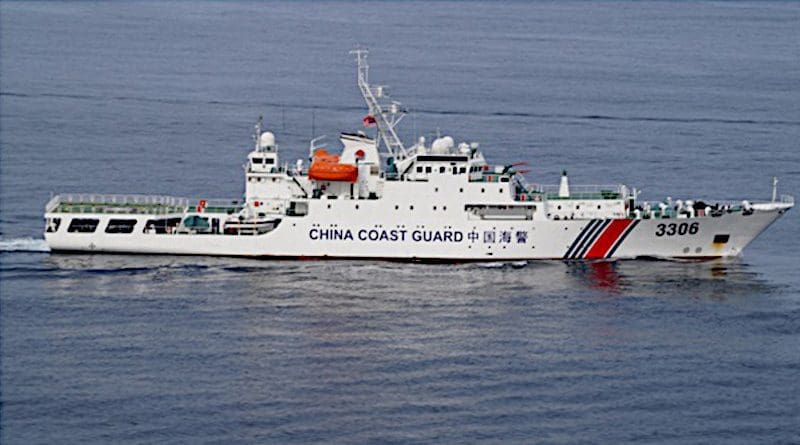China Passes Law Allowing Coast Guard To Use Force Against Foreign Vessels
By BenarNews
By Zachary Haver
China passed a new law Friday granting its coast guard more leeway in asserting Chinese claims in the contested South China Sea and authorizing the use of force against foreign vessels.
The National People’s Congress passed the Coast Guard Law of the People’s Republic of China to help the China Coast Guard defend “national sovereignty, security, and maritime rights and interests.”
Since it was founded in 2013, the CCG has operated across the South China Sea, which is the site of overlapping maritime and territorial claims between China, the Philippines, Vietnam, Taiwan, Malaysia, and Brunei. In 2018, the CCG was transferred from the State Oceanic Administration to the People’s Armed Police, making it part of China’s military.
The CCG already has a reputation for confronting and sometimes clashing with fishing boats and other vessels of neighboring countries in contested waters in the South China Sea, which Beijing claims virtually all for itself.
Analysts see the new law as an attempt to provide grounds for escalating CCG’s assertive behavior in the South China Sea. Carl Thayer, an emeritus professor at the University of New South Wales, told Radio Free Asia (RFA) that “China is just trying to dress up whatever it does and say ‘Our laws cover it.’”
BenarNews is affiliated with RFA.
Article 22 of the new law authorizes the CCG to “take all necessary measures including the use of weapons to stop infringements and eliminate dangers” when “foreign organizations and individuals” infringe upon China’s “national sovereignty, sovereign rights, and jurisdiction.”
Article 47 permits coast-guard personnel to use hand-held weapons when foreign vessels resist orders from the CCG and other stopping measures fall short.
Article 20 allows the coast guard to stop foreign countries from “constructing buildings, structures, and setting up all kinds of fixed or floating installations” in China’s “jurisdictional waters” or on islands and reefs claimed by China. It also authorizes the CCG to demolish these structures.
Other articles in the law give the CCG the right to track and monitor foreign vessels in China’s jurisdictional waters, detain or forcibly remove foreign vessels operating in China’s territorial seas, and forcibly evict foreign military or government vessels from jurisdictional waters.
Another section allows CCG personnel to use shipborne weapons, airborne weapons, and hand-held weapons in anti-terrorism operations, during “serious violent incidents,” and when CCG ships and aircraft are attacked with “weapons or other violent means.”
Data from the China Power Project, a program of the Center for Strategic and International Studies think-tank in Washington shows that CCG ships and other Chinese maritime law enforcement vessels are involved in the majority of major incidents in the South China Sea.
A previous Radio Free Asia investigation found that CCG vessels work with China’s maritime militia to maintain a continuous presence in contested areas.
The Coast Guard Law will come into effect on Feb. 1, 2021.
There was no immediate reaction from neighboring governments to the passage of the law on Friday. But it is likely to intensify concerns that China could use force in disputed waters. Coastal nations fish the South China Sea intensively and conduct exploration for oil and gas there.

